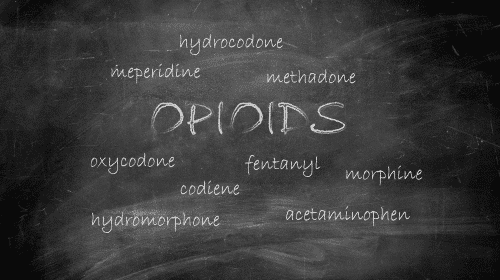Expert Insights
I recently read an article about Fresno being ranked as the 6th worst place to live if you want to stay sober. I was surprised to learn that researchers studied several major cities and ranked them based on temptation, sobriety, infrastructure, and community support. I think this kind of media and research is harmful for people trying to sustain recovery and treatment centers trying to help people get sober. The reality is, I believe, it is hard to stay sober anywhere in a country that promotes alcohol use and where cannabis is legal in many states. Instead, I think our focus should be on providing resources for more community support — which we know is a fundamental aspect of staying in recovery.
~ Olivia Pennelle
How Much Does Drug Rehab Cost in California?
California is ranked 23rd nationwide in terms of addiction treatment affordability, with an average cost of drug and alcohol rehab of $56,654 (without insurance).
- Medical detox is the most expensive, with an average cost of $139,673
- Long-term inpatient drug rehab in California costs an average of $49,994
- Outpatient addiction treatment in California costs an average of $8,307
- Outpatient methadone treatment is the most affordable, with an average cost of $7,381
Are There Low-Cost and Free Drug Rehab Centers in Fresno?
If you are unable to pay for your addiction treatment, you might be eligible for low-cost or free care at one of Fresno’s state-funded facilities. If you go that route, be prepared to prove that you:
- Are a U.S. resident
- Are a resident of California
- Don’t have insurance, or your insurance is inadequate
- Have an addiction or mental health diagnosis
As of 2024, there were over 2020 drug rehab facilities across the state of California. Of those treatment facilities, the following numbers reflect how many provide free or low-cost drug rehab services:
Does Insurance Cover Rehab Center Costs?
Addiction treatment is usually covered either in part or fully by insurance. The Affordable Care Act has extended affordable rehabilitative and psychiatric care in most cases, eliminating the pre-existing condition sticking point used to reject most cases in the past. ACA-sponsored insurance plans include coverage for the following:
- Substance abuse evaluation
- Addiction treatment medication
- Alcohol and drug testing
- Anti-craving medication
- Brief interventions
- Clinic visits
- Family counseling
- Home health visits
- Inpatient services
Depending on the type of ACA-compliant plan used, 60%-90% of addiction expenses would be covered.
Private Insurance
Drug and alcohol care is an Essential Health Benefit under the ACA. As all employer-paid insurance policies from mid- to large-sized businesses must comply with the ACA, these policies must offer some form of rehab payment or reimbursement for services.
Medicare
Medicare, within itself, does not offer a rehab benefit. The publicly funded senior health insurance benefit, instead, offers funding for care deemed to be necessary and reasonable. As such, addiction treatment may need to be prescribed before Medicare will pay for services. These services include, but are not limited to:
Medicaid
Medicaid is the primary publicly-funded health insurance plan for non-federal employees in the United States. Under the Emergency Medical Treatment & Active Labor Act (EMTALA), any Medicaid-accepting facility must accept medically unstable patients and stabilize them, regardless of their capability to pay.
How Do You Pay for Addiction Treatment in Fresno?
There are ways to pay for your care in a Fresno facility, even if you have no insurance and are not eligible for free services:
Programs that Offer Payment Plans: Most for-profit programs will accept a payment plan, which offers payments in four or more equal payments. Funded by an external payment partner, this allows the patient to pay for rehabilitation in installments instead of in one single payment.
Apply for a Scholarship: A patient can apply for financial aid—akin to paying for college—to subsidize their treatment. This can consist of a partial or full scholarship, a grant, or a preferential rate for a loan. This funding could be public or private and could be applied for by the patient or by the facility.
Sliding-Scale Program: Some hospitals and not-for-profit facilities may have sliding-scale payment plans, which function as a backdoor scholarship program. Taking into consideration your income and savings, the facility will adjust the cost of treatment accordingly, absorbing the excess.
How Does Fresno Compare in Alcohol and Drug Use?
With a 2023 population of over 556,300, Fresno is the 5th-largest city in California and the 32nd-largest city in the U.S.1 It is also a city amid a drug crisis. As of 2020, there were more meth-related deaths than there were suicides, homicides, automotive-involved deaths, fire fatalities, and drowning deaths combined.2 For those seeking help, it may feel like there are not enough resources to go around. This, however, is not true. There are nearly 30 drug rehab centers in Fresno and the surrounding area.3
According to the Healthy Fresno County Community Dashboard, 3% of all Fresno County patients were admitted for opioid prescription-related maladies2. This rate is on par with other California counties.
It is also estimated that for every 100,000 residents, there were 71 opioid-related deaths in Fresno County and 107 hospitalizations7.
Among the Fresno population:

3% admitted to binge drinking alcohol in the last 30 days

4% confirmed they were were prescribed a form of opioids

27% of all driving deaths involved alcohol

20% of all coroner cases involved an accidental overdose
Drug and Alcohol Laws in Fresno
California “Good Samaritan” Law: Like many other states, California passed a “Good Samaritan” law, limiting the criminal penalties for those experiencing an overdose. To alleviate the fear of prison time on drug offenses for reporting an overdose, the law—AB 472, California’s Good Samaritan Law—eliminates penalties for possession, consumption, or transportation of a controlled substance by an overdosing person or by a person reporting an overdose.8
The law does not offer immunity to those who sell, give, or offer drugs or to those who force the consumption or use of drugs. It also does not offer protection from drug and alcohol-enabled crimes, like DUI or DWI.
Rehab for People Convicted of Non-Violent Crimes: Proposition 36, which was passed in 2000, allows non-violent drug possession sentences to receive probation in lieu of a prison sentence. This probation would be on the grounds that the defendant participates in and complete a state-approved drug program. If the defendant fails in the program, the probation would be withdrawn, and the convicted may be subject to additional sentences. The results of this program have been mixed; while it saves the states millions in incarceration costs, the rate of drug-related rearrests in the state has increased.9
California Employee Protections for Addiction Treatment: Under California Labor Code Section 1025, any employer with a labor force of 25 or more must offer reasonable accommodations to anyone voluntarily entering drug or alcohol rehabilitation, provided the accommodation does not cause a hardship to the company. This law does not, however, prevent an employer from firing or refusing to hire someone based on his/her drug use if that drug use creates a hazard to the public or makes the person unsafe to work in the position.10
How to Choose the Best Fresno Rehab for You
There is no one solution that is perfect for everyone. You may want a comfortable facility that has certain amenities. Others may want a facility that has counselors or therapists recommended to them. Others may want a more cost-effective solution.
When choosing an addiction treatment center, one should consider:
- Cost: Many facilities offer adjustable payment options, including payment plans and sliding-scale pricing. You may also be eligible for a grant through SAMHSA or through private or government sources.
- Inpatient or outpatient: Some facilities offer both inpatient and outpatient services, while others offer outpatient only. An outpatient center may offer fewer amenities but may also be more affordable.
- Insurance: Not every facility accepts insurance, and those that do does not accept every plan. It is important to understand what your insurance company allows. The insurer’s customer service department can help you find an accepted healthcare provider.
- Amenities: If you are looking for specific amenities, it is important to do your research first. Amenities like massage therapy may be essential to one’s self-worth and, therefore, important to the therapy plan. For others, these amenities may be less important.
- Demographics: Some centers cater to specific groups, like the Spanish-speaking community, immigrants, veterans, teens, and LGBTQ+.
- Visitor policy: Different centers have different approaches to visitors. If having your family or friends is essential to you, it would be important to find a treatment center with a lax visitation policy.
- Philosophy: Different facilities use different philosophies on healing. Some are faith-based, while others are holistic or clinical. It is important to find facilities or detox centers in Fresno that best matches your philosophy toward healing.
Resources
-
- Fresno, California Population 2021 (Demographics, Maps, Graphs). (n.d.). Worldpopulationreview.com.
- Lah, Kyung, Anna-Maja Rappard and Rachel Clark, (2021) “In Fresno’s Meth Hell, There’s No Antidote,”
- FindTreatment.gov. (n.d.). FindTreatment.gov.
- Community Dashboard (2021). “Opioid Prescription Patients,” Healthy Fresno County Community Dashboard.
- Community Dashboard (2019). “Adults who Binge Drink: Last 30 Days,” Healthy Fresno County Community Dashboard.
- Community Dashboard (2020). “Age-Adjusted Annual Opioid Prescription Rate,” Healthy Fresno County Community Dashboard.
- Community Dashboard (2019). “Alcohol-Impaired Driving Deaths,” Healthy Fresno County Community Dashboard.
- Gentry, Jeff (2020). “2020 Coroner Unit Statistics,” Fresno County Sheriff’s Office.
- Fresno County Dashboard (2020). California Overdose Surveillance Dashboard.
- Drug Policy Alliance (2013). “Understanding California’s 911 Good Samaritan Law.”
- Garvey, Megan and Jack Leonard (2007). “Drug Use Rearrests Up After Prop. 36.” Los Angeles Times.
- California Legislative Information (1987). “Chapter 3.7. Alcohol and Drug Rehabilitation [1025-1028].” California Legislature.
- DrugFacts (2018). Understanding Drug Use and Addiction DrugFacts. National Institute on Drug Abuse.



